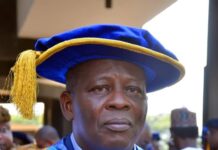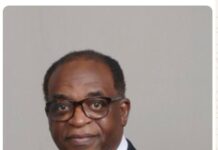 On Wednesday, the 17th of April 2013, the presidency announced the setting up of two presidential committees which has engaging members of the Boko Haram sect and defining comprehensive and workable framework for resolving insecurity in the country as its primary objective.
On Wednesday, the 17th of April 2013, the presidency announced the setting up of two presidential committees which has engaging members of the Boko Haram sect and defining comprehensive and workable framework for resolving insecurity in the country as its primary objective.
The committees which has prominent Nigerians drawn the different spheres of life is to develop a framework for granting of amnesty to the Boko Haram sect; setting up of a framework through which disarmament could take place within a 60-day time frame as well as developing a comprehensive victims’ support programme, and mechanisms to address the underlying causes of insurgencies that will help to prevent future occurrences.
While the decision of the Federal Government on the setting up of the two committees is quite commendable, especially as it may bring about peace in the country, revelations coming from some persons as well as their rejection to serve in the committee gives cause for concern.
Two members of the Boko haram committee who are expected to play prominent roles in the success of the committee have already rejected the appointment citing various reasons for doing so.
First was a human rights activist, Shehu Sani who in the past has repeatedly criticised the Federal Government over its handling of the Boko Haram insurgency. According to Sani, he was not consulted before being appointment into the committee. Apart from his believe that the best and easiest way to reach out to the leadership of the violent sect is to engage journalist Ahmad Salkida, who had reported extensively on the insurgency, he also thinks he has said enough on what the government should do to end the insurgency, but it seems the government is not ready to heed his advice.
While the dust over Shehu Sani’s rejection of the appointment was yet to settle, another prominent figure and head of the Supreme council for Sharia in Nigeria, Mr Datti Ahmad turned down the appointment. Mr Ahmed said his decision was based on his past experience in dealing with the government on the Boko Haram issue. He cited two reasons, first that the government reneged on its agreement to grant the two conditions the Boko Haram sect demanded upon which successful dialogue will take place, thus displaying its insincerity and secondly, that the report of the committee which he was expected to serve in may be filled with lies considering the fact that the chairman and secretary of the committee are serving minister and civil servant respectively, who according to him will feel obligated to tell the government what it wants to hear.”
From the foregoing, one can conclude that the Federal Government is still far from convincing Nigerians that it has the capacity to deal with the Boko Haram insurgency. The fact that the situation got to a stage where amnesty is considered tells how much the government has failed in doing the needful. Except for the fact that we are now looking the way of amnesty to restore peace to the northern part of the country, the ideal thing would ordinarily be that the insurgents be crushed and those who needs to face justice for the senseless killing of Nigerians and destruction of properties be made to face the full wrath of the law, but here we are considering amnesty because incompetence has brought us to that stage.
The questions are why on earth should you nominate people into committees that are expected to deal with issues as sensitive as Boko Haram without consulting them? Why do we need to have politicians that are most likely going to hide the truth from what it is if we are really interested in dealing with the insurgency? What is the big deal in having someone who has interfaced with the insurgent group a member of the committee if the government is really sincere in pursuing peace?
The government needs to understand that this issue at hand is beyond politics and must therefore not use it as an avenue to reward political loyalists. The entire situation may not have gotten this bad if government had not played politics with it when it first surfaced. Now that there is a window of opportunity to resolve the menace, the government must do all that is necessary to bring the sect’s members to the roundtable and not renege on any agreement reached with the sect. The government must be open in its dealing, engage the right people who can muster the courage to mediate between it and the sect and stay away from playing politics with the issue.
Although, President Jonathan told us the Boko Haram members are ghosts, but Datti Ahmed’s account indicates that the government had dialogued with the group more than once in the past. My take is that if this had been possible in the past, it can still happen again. All that is required is sincerity on the part of all those concerned.
___________________________________________________________________________
Abubakar Sidiq Usman is an Urban Planning Consultant; Blogger and an Active Citizen working towards a better Nigeria. He blogs HERE and can be engaged directly on twitter @Abusidiqu



